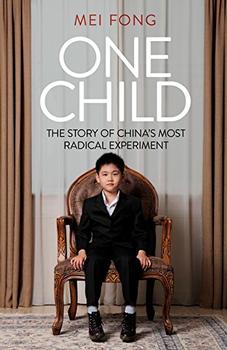Summary | Excerpt | Reading Guide | Reviews | Readalikes | Genres & Themes | Author Bio

The Story of China's Most Radical Experiment
by Mei Fong
After twenty years of below-replacement rates, China is taking baby steps to encourage more couples to have two children to ease demographic pressures. So far, it doesn't appear to be working. Only about a tenth of eligible couples applied for permission to have a second child one year after Beijing introduced its most recent nationwide round of changes, a take-up below even the most pessimistic projections. Many say it's simply too costly and stressful to raise multiple offspring in modern-day China. In that sense, the one-child policy can be judged a success, for many Chinese have thoroughly internalized the mindset that the one-child household is the ideal.
If Beijing is unable to reverse this thinking, then somewhere in the decade between 2020 and 2030, China's population will peak and decline. By 2100, China's population may have declined to 1950 levels, about 500 million, a startling reversal for the world's most populous nation. No other country has ever shed this much of its population without the aid of warfare or pestilence. And at the same time, the policy's enforcement has occasionally been vicious, bordering on inhumane in certain cases, and it has encouraged a number of baleful side effects, from a potentially explosive gender imbalance to what is essentially a black market for adoptable infants.
China's one-child policy was crafted by military scientists, who believed any regrettable side effects could be swiftly mitigated and women's fertility rates easily adjusted. China's economists, sociologists, and demographers, who might have injected more wisdom and balance, were largely left out of the decision making, as the Cultural Revolution had starved social scientists of resources and prestige. Only the nation's defense scientists were untouched by the purges, and they proved not the best judges of human behavior.
The sad truth is, the harsh strictures put in place by the one-child policy were unnecessary for economic prosperity. By the 1970s, a full decade before the policy, China already had in place a highly effective and less coercive family-planning policy, called the "Later, Longer, Fewer" campaign. In the ten years the Later, Longer, Fewer campaign was in place, women in China went from having six children on average to three.
Excerpted from One Child by Mei Fong. Copyright © 2016 by Mei Fong. Excerpted by permission of Houghton Mifflin Harcourt. All rights reserved. No part of this excerpt may be reproduced or reprinted without permission in writing from the publisher.




Talent hits a target no one else can hit; Genius hits a target no one else can see.
Click Here to find out who said this, as well as discovering other famous literary quotes!
Your guide toexceptional books
BookBrowse seeks out and recommends the best in contemporary fiction and nonfiction—books that not only engage and entertain but also deepen our understanding of ourselves and the world around us.